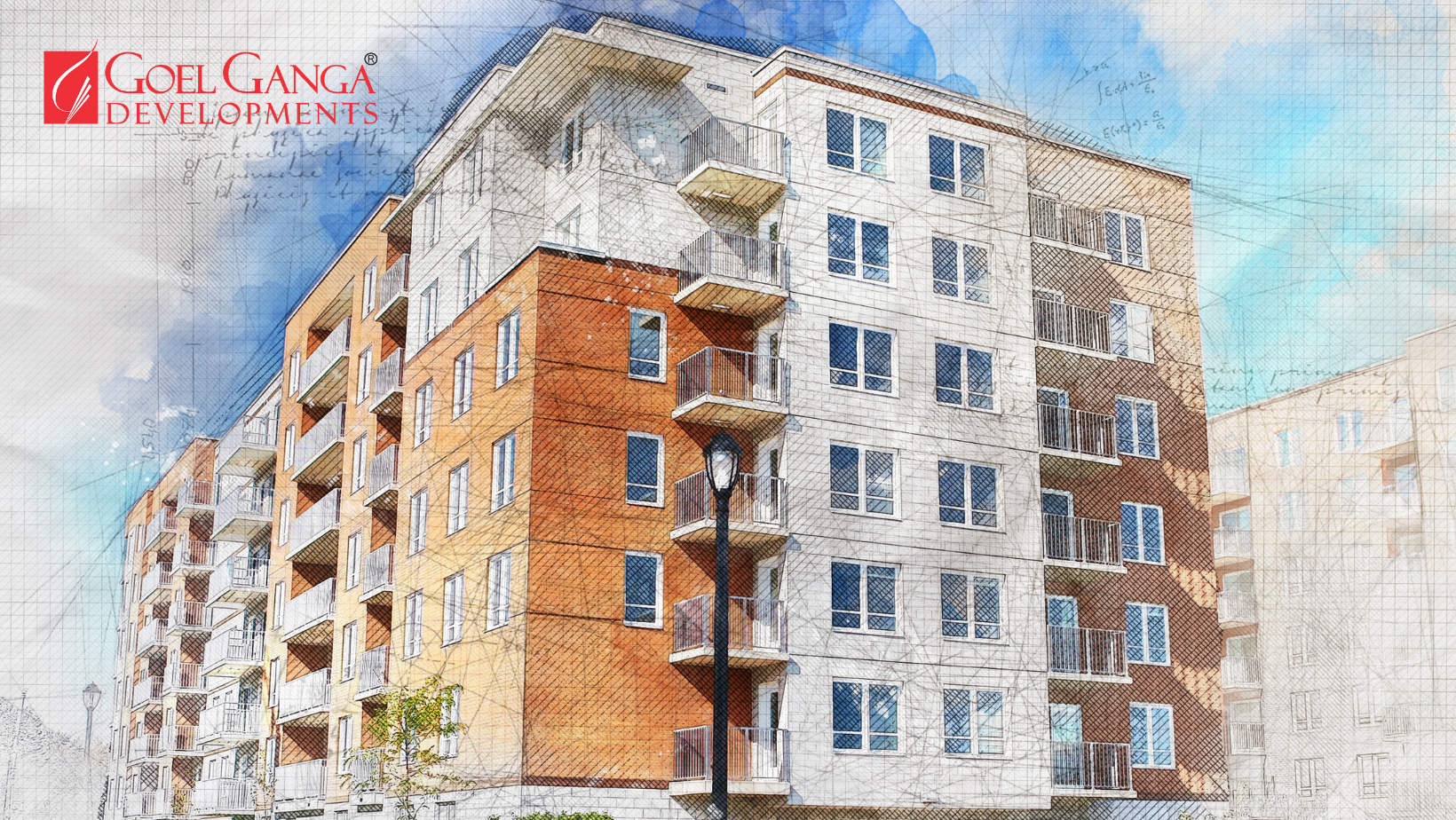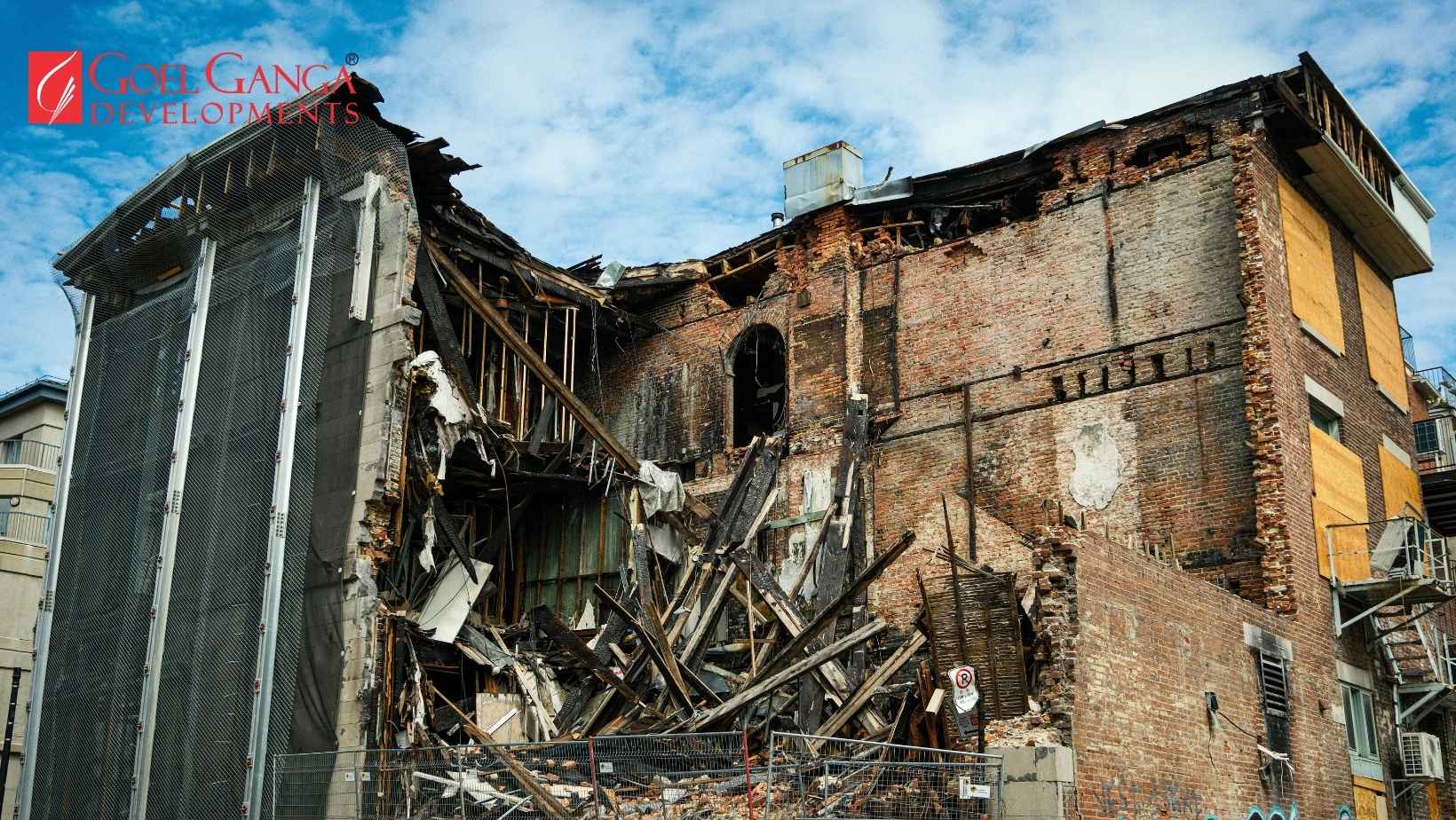After you have narrowed your choices to a housing community that has an HOA and other communal features, you will still have to determine the type of dwelling to reside in. Essentially, there are two main classes of structures in this regard: a condominium that has the features of an apartment or a townhouse that has the features of a row-house. Condominium are the traditional arrangement, although townhouses are gaining favour.
Each choice has unique advantages and disadvantages. Overall, living in a townhouse is more similar to being a typical—or house-based — homeowner. A condo owner just owns the inside of the unit, but a townhouse owner owns the inside, exterior, and land on which the structure is built.
Let’s delve deeper into the condo versus townhouse discussion and the distinctions between the two suggested by
Ms. Gunjan Goel, the Director of Goel Ganga Developments.
Table of Contents
ToggleWhat is a condominium?
Condominiums, or condos, are units within a single, big structure, usually a high-rise. There is a communal entry and sometimes a shared garage. These dwellings are generally one-story, like standard apartments. Condominiums, which have more people per building than townhouse communities, may have facilities such as a pool, clubhouse, library, gym, or even unique services such as concierge or dry cleaning delivery.
What is a townhouse?
Townhouses are multi-story constructions that share outside walls with their neighbours. Not to be confused with the row houses found in older urban neighbourhoods (which are separate single-family households), these homes feature more square footage and larger floor designs than condos. A townhome community can provide residents with a hybrid experience of living in their own home (there may even be an attached private garage) while still offering some of the benefits of community membership. Townhouse communities often include community amenities such as a park or a pool. Some even feature little “town centres” with rows of stores, services, and restaurants.
What is the difference between a condo and a townhouse?
Apart from structural differences, there are subtle variances between condo and townhouse life. While a homeowners organisation governs both a condo and a townhouse, certain condo associations may impose harsher regulations, such as limiting landscaping or external improvements. Townhouses provide more versatility in terms of how you may alter your property and how it looks overall.
Other variations to consider:
Cost:
Condominiums may be less expensive than townhouses in some markets due to their smaller size. Condos, on the other hand, typically have higher monthly HOA dues due to the more extensive facilities of their buildings, whilst townhomes sometimes have cheaper HOA costs.
Insurance:
Insurance coverage may change based on whether you purchase a condo or townhouse. Condo insurance typically just covers the interior of your unit, whereas townhome insurance may cover both inside and outside, thereby increasing the cost.
Maintenance:
Condominiums typically require the least amount of maintenance of any form of dwelling. Townhouse owners must maintain the home’s façade (roof and siding), outdoor living spaces, and, in most cases, a small garden. While the upkeep is not as substantial as in a single-family house, it is clearly more comprehensive than in a condo unit.
Be sure to include in the financial plan and make provision for additional expenses for upkeep.
Amenities:
Evaluate which ones you value most and search for such different communities within a specific location for example, security, swimming pool, gym, dog park, etc.
Location:
One of the key considerations in buying any piece of real estate is location. Most of the residential high-density housing structures, such as high-rise condominiums, would be located close to the city center in comparison to townhouse units, which normally would take up a larger space and are hence situated further away from the city services, including shops and restaurants.
HOA regulations:
Condominiums, in general, have more stringent — some could argue restrictive — restrictions for tenants. These might include days and times when garbage can be left out, laws about outside decorations, and what products homeowners may store on their patios. Townhouse neighbourhoods come with limitations; however, residents tend to enjoy more freedom. In case you are interested in buying any property, find out as much information as possible on the rules and regulations governing the particular community.
Advantages and disadvantages of condos
Pros of the condominium
Affordability:
The relatively cheaper cost of condos may suit new buyers or any individual looking to scale down.
Centrally placed:
Many condo projects are close to city centres, and amenities are often within walking distance.
Low maintenance:
Even if you own your condo, you will not be responsible for maintaining the common spaces inside and outside of it; it is the responsibility of the condo association.
Cons of a condominium
Next to the neighbours:
There is a high possibility that you will be residing along with some other members of the condominium depending on the condo complex. If you value being in a peaceful and silent environment, then a condominium might not be the best option for you.
Monthly dues:
As a condo owner, you are responsible for paying HOA fees, which might include maintenance, security, and garbage pickup. They can be raised whether you like it or not.
Restrictions:
With a condo, you just own the unit and are often required to follow the association’s regulations, which might limit how you can modify the interior (in terms of structural improvements) or decorate the outside.
Advantages and drawbacks of townhouses
Townhouse pros
More area:
A townhome has the possibility of allowing more area than a condo, having two or more stories, a garden, and a garage.
Compare to a detached home:
If the concept of a detached home enjoys you but the idea of a condo is not very different, a townhouse will usually balance these preferences.
Disadvantages of Townhouses
More maintenance:
A townhome takes more maintenance than a condo because you own and manage more space in general.
Location:
Townhouses, especially large ones, may be situated more further away from the activities than the condos.
Lack of Privacy:
Townhouses are still linked apartments, so there may be privacy and noise issues with this style of dwelling.
Condos are suitable for purchasers who do not mind sharing their living space with other people on the floors above, below, and next to them. Condos are also a good investment for someone who values having all of their living space on one floor, such as an older buyer who plans to age-in-place in their current house. Condominium structures have a lesser environmental footprint than skyscrapers with individual homes. They are also often located in or near active districts of town with a variety of stores, restaurants, and companies.
If you like the separate-house notion, a townhouse may be a better choice of community property, allowing you to enjoy the benefits of a single-family home while still benefiting from communal living. Despite being surrounded by a number of other houses, specifically in a semi-detached house, the sense of “loneliness” or solitude is much better, as it usually comes with a backyard lawn or parking of some sort. A townhouse is also an ideal choice for those family-oriented home buyers who want a house with ample room but do not mind more than one level.










